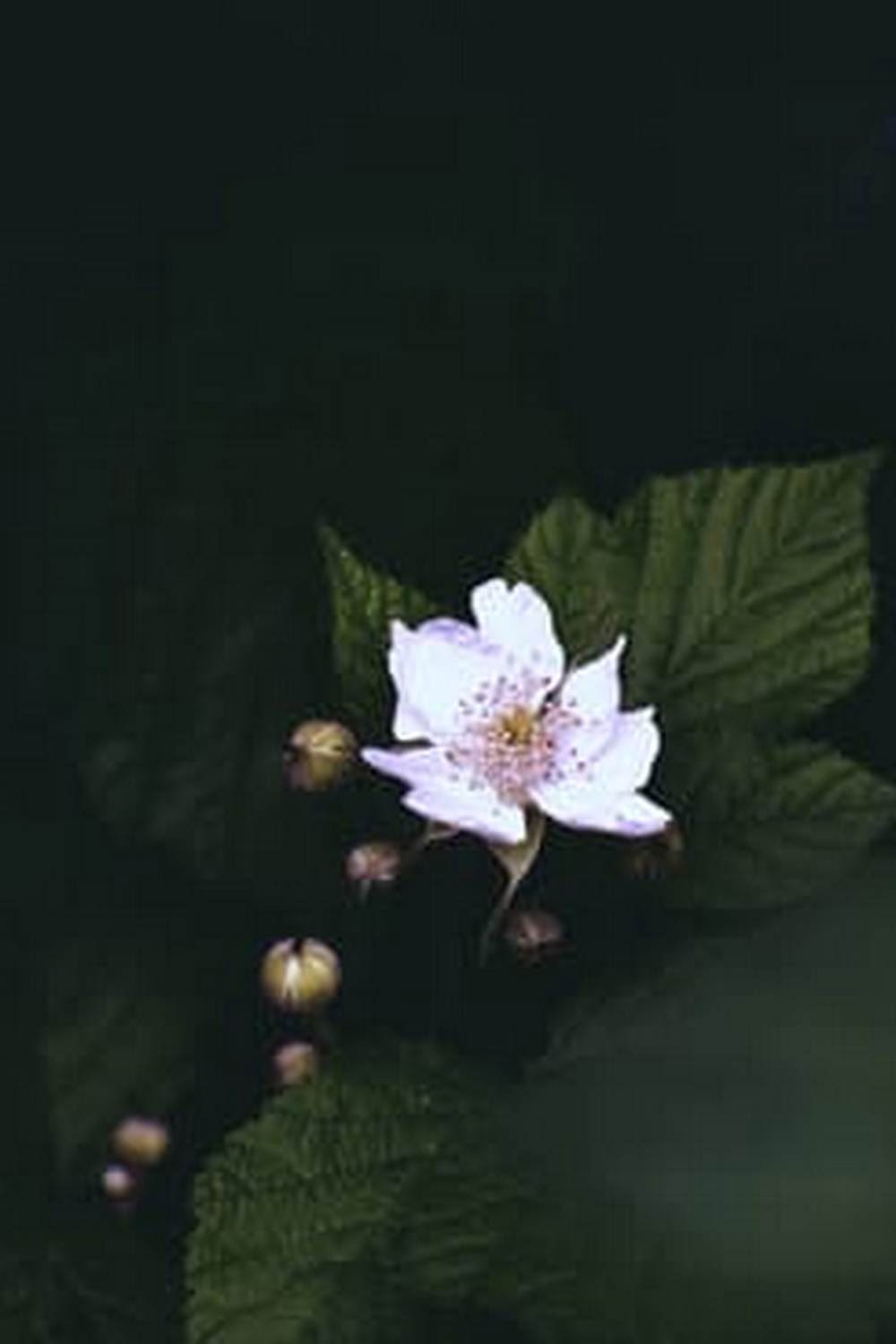Do grubs harm vegetable gardens? Grubs, the larvae of various types of beetles, can certainly cause damage to vegetable gardens if left unchecked. Understanding the role of grubs in the ecosystem and learning how to identify signs of their presence is essential for maintaining healthy crops. In this article, we will explore the impact of grubs on vegetable gardens and provide tips for identifying, controlling, and preventing infestations.
Grubs play a significant role in the ecosystem as decomposers, breaking down organic matter in the soil. However, when present in large numbers, they can pose a threat to vegetable gardens. Early detection and proper management are key to protecting your crops from potential damage caused by grubs.
In this comprehensive guide, we will discuss the signs of grub infestation in vegetable gardens, the specific damage they can cause to plants, as well as natural and chemical methods for controlling their population. Additionally, we will provide prevention and maintenance tips for maintaining a grub-free vegetable garden. Stay tuned to learn more about how to protect your precious crops from these underground pests.
The Role of Grubs in the Ecosystem
Grubs play a significant role in the ecosystem, particularly in vegetable gardens. These soil-dwelling larvae of various beetle species contribute to the breakdown of organic matter and help improve soil structure by creating channels for air and water. In addition, grubs serve as a food source for various animals such as birds, moles, skunks, and other insect predators, making them an essential part of the food chain.
Here are some key ways grubs contribute to the ecosystem:
- Soil Aeration: As grubs tunnel through the soil in search of organic matter to feed on, they inadvertently aerate the soil, which improves its structure and drainage.
- Organic Matter Decomposition: Grubs feed on decaying plant material, effectively breaking it down and enriching the soil with essential nutrients.
- Food Source for Wildlife: Grubs are a vital food source for many animals. Birds, in particular, rely on grubs to nourish themselves and their offspring.
It’s important to note that while grubs have a beneficial role in the ecosystem, they can also cause damage to vegetable gardens if their population becomes excessive. Understanding how grubs fit into the larger ecosystem allows vegetable gardeners to implement effective management strategies that minimize harm while preserving their vital ecological functions.
Signs of Grub Infestation in Vegetable Gardens
Grubs are the larval stage of various types of beetles, including Japanese beetles, June bugs, and European chafers. These pests can wreak havoc on vegetable gardens if left unchecked. So, how do grubs harm vegetable gardens? There are several signs that indicate a grub infestation in your garden.
One of the most common signs of grub infestation is wilting or yellowing plants. This occurs because grubs feed on the roots of plants, depriving them of essential nutrients and water. As a result, the affected plants may appear weak and unhealthy. Another sign to look out for is an increase in animal activity in your garden, particularly from animals like raccoons, skunks, and birds. These creatures dig up the soil in search of grubs as a food source.
If you notice any irregular patches of dead or dying grass in your lawn adjacent to your vegetable garden, this could also be an indication of a grub infestation. As grubs feed on grassroots and disrupt the soil structure beneath the grass surface, it can lead to these unsightly brown patches.
In addition to these visible signs, you may also find evidence of grubs themselves when tending to your garden soil. If you happen upon C-shaped white larvae while gardening, these are likely grubs. Keeping an eye out for these indicators is crucial for identifying a potential grub problem before it escalates into widespread damage to your vegetable garden.
| Signs of Grub Infestation | Action |
|---|---|
| Wilting or yellowing plants | Inspect plant roots for feeding damage; apply natural or chemical control methods |
| Increase in animal activity (raccoons, skunks, birds) | Set up deterrents and traps; use natural control methods such as nematodes to combat grubs |
| Patches of dead or dying grass near the garden | Treat affected areas with natural or chemical grub control products; overseed damaged areas |
| Finding C-shaped white larvae in the soil | Consider implementing natural methods like introducing beneficial nematodes; utilize chemical treatments as a last resort |
The Damage Grubs Can Cause to Vegetable Gardens
As much as grubs are part of the natural ecosystem, they can cause severe damage to vegetable gardens if left unmanaged. It is essential for gardeners to understand the potential harm that grubs can inflict on their crops in order to take proactive measures to control their population. Here are some of the ways grubs can harm vegetable gardens:
1. Root Damage: Grubs feed on the roots of plants, causing them to weaken and become more susceptible to disease and dehydration. This can result in stunted growth, wilting, and even plant death. Some common signs of root damage by grubs include yellowing leaves, poor fruit production, and overall decline in plant health.
2. Soil Disruption: As grubs tunnel through the soil in search of food, they can disrupt the soil structure and create air pockets that interfere with water and nutrient distribution to plants. This can further exacerbate root damage and hinder the overall health of the vegetable garden.
3. Decreased Yield: When left unchecked, a significant grub infestation can lead to decreased yield in vegetable gardens. The damage caused by grubs can prevent plants from reaching their full potential and result in fewer fruits or vegetables being produced.
To mitigate the damage caused by grubs in vegetable gardens, it’s important for gardeners to implement effective control measures such as natural predators, biological controls, or chemical treatments specifically targeted at grub management. Additionally, maintaining healthy soil and practicing good gardening habits can help reduce the risk of grub infestations and minimize their impact on vegetable crops. By understanding how grubs can harm vegetable gardens, gardeners can take proactive steps to protect their plants and ensure a productive harvest.
How to Identify and Control Grubs in Vegetable Gardens
Grubs are a common pest in vegetable gardens and can cause significant damage if left unchecked. Identifying and controlling grubs is essential for maintaining a healthy and productive garden. In this section, we will discuss how to identify the presence of grubs in your vegetable garden and various methods for controlling their population.
Identifying grubs in your vegetable garden can be relatively straightforward. Signs of grub infestation include wilting or yellowing plants, as well as patches of dead or dying grass. Additionally, if you notice an increase in wildlife activity such as birds, raccoons, or skunks digging up your garden or lawn, it could be a sign that they are feeding on grubs.
Once you have confirmed the presence of grubs in your vegetable garden, it is important to take action to control their population. There are several natural methods for managing grubs, including using beneficial nematodes or applying milky spore powder to the soil. These natural predators can help reduce the number of grubs without harming other beneficial insects or plants.
In addition to natural methods, chemical control options are available for managing grub infestations. This includes using insecticides specifically targeted at killing grubs. It is important to carefully follow the instructions when using chemical control methods to ensure safety for yourself, your family, and the environment.
| Method | Description |
|---|---|
| Beneficial Nematodes | Natural predators that can help reduce grub population without harming other beneficial insects. |
| Milky Spore Powder | An organic method for controlling grubs that infects and kills them without harming other organisms. |
| Insecticide Application | Chemical control option specifically targeted at killing grubs but should be used with caution. |
Natural Methods for Managing Grubs in Vegetable Gardens
When it comes to managing grubs in vegetable gardens, natural methods can be an effective and environmentally friendly approach. By utilizing natural methods, gardeners can minimize the use of chemicals and promote a healthy ecosystem within their garden. Here are some natural methods for managing grubs in vegetable gardens:
Encourage Natural Predators
One natural method for managing grubs in vegetable gardens is to encourage the presence of natural predators. Birds such as robins, starlings, and blackbirds feed on grubs and can help keep their population in check. To attract these birds to your garden, provide bird baths, bird feeders, and plant native trees and shrubs that offer cover and nesting sites.
Beneficial Nematodes
Another natural method for controlling grubs is the use of beneficial nematodes. These microscopic organisms are applied to the soil and are effective at targeting and killing grub larvae. Beneficial nematodes are safe for humans, pets, plants, and other beneficial insects, making them an ideal choice for organic gardening.
Crop Rotation
Implementing crop rotation practices can also help manage grub populations in vegetable gardens. By rotating crops each season, you disrupt the life cycle of grubs since they rely on specific host plants to survive. This reduces their numbers without the need for chemical intervention.
By incorporating these natural methods into your pest management strategy, you can effectively manage grubs in your vegetable garden while promoting a healthy and sustainable gardening environment.
Chemical Control of Grubs in Vegetable Gardens
Understanding the Use of Chemicals
When it comes to managing grubs in vegetable gardens, chemical control can be an effective method. However, it is important to understand that using chemicals to control grubs should be a last resort. Chemical pesticides can have detrimental effects on the environment and beneficial insects, so it’s important to carefully consider the use of these products.
Types of Chemical Control
There are various chemical products available for controlling grubs in vegetable gardens. These include granular insecticides that are spread over the soil, as well as liquid insecticides that can be sprayed directly onto the affected areas. It’s important to follow the instructions provided on these products carefully and use them only as directed.
Considerations and Precautions
Before opting for chemical control of grubs in your vegetable garden, it’s crucial to weigh the potential risks and benefits. Consider whether there are alternative methods that could effectively manage grub infestations without resorting to chemicals. If you do decide to use chemical control, take precautions to protect yourself, your family, and the environment by wearing protective gear and following safety guidelines. Always store and dispose of chemical products according to local regulations to prevent environmental contamination.
By being mindful of the potential impact of using chemical controls for grubs in your vegetable garden, you can make informed decisions about how best to manage this pest while minimizing harm to your crops and the surrounding environment.
Prevention and Maintenance Tips for Grub-Free Vegetable Gardens
Preventing grub infestation in your vegetable garden is crucial to maintaining the health of your crops. One of the best ways to prevent grubs from wreaking havoc on your vegetable garden is by practicing good garden hygiene. This includes regularly removing any dead plants, roots, and other organic matter that can attract adult beetles looking to lay their eggs. Additionally, rotating your crops annually can help disrupt the life cycle of grubs and reduce their numbers in the soil.
When it comes to maintenance, keeping your soil healthy and well-aerated is essential for preventing grub infestation. Proper watering and fertilization can promote strong plant growth, making them more resistant to damage caused by grubs. Regularly inspecting your garden for signs of grub infestation such as wilting or dying plants, yellowing grass, and patches of irregularly colored or thinning vegetation can also help you catch an infestation early on before it becomes a major problem.
Lastly, promoting biodiversity in your garden can contribute to natural grub control. Planting a variety of flowers, herbs, and vegetables can attract beneficial insects like parasitic wasps and ground beetles that feed on grubs. Additionally, using nematodes-an organic control method-in your garden can also help keep grub populations in check. By following these prevention and maintenance tips, you can ensure that your vegetable garden remains healthy and free from the harmful effects of grub infestations.
Conclusion
In conclusion, it is clear that grubs can indeed harm vegetable gardens if left unchecked. Their feeding habits can cause significant damage to the root systems of plants, which can ultimately lead to stunted growth and reduced yields. Additionally, the presence of grubs in the soil can attract other pests and animals that may further compromise the health of vegetable crops. Therefore, it is crucial for gardeners to be vigilant in identifying and controlling grub infestations in their gardens.
Fortunately, there are several methods for managing grubs in vegetable gardens. Natural control methods such as introducing beneficial nematodes or predatory insects can help keep grub populations in check without the need for chemical intervention. Additionally, practicing good garden maintenance, such as proper watering and soil aeration, can create an environment that is less hospitable to grubs.
For those facing severe infestations, chemical control options are available, but it is important to use them judiciously and according to label instructions to minimize harm to beneficial organisms and the broader environment. Furthermore, implementing preventative measures such as rotating crops and maintaining healthy soil can help reduce the likelihood of future grub infestations. By taking these proactive steps, gardeners can protect their crops from the damaging effects of grubs and enjoy a bountiful harvest.
Frequently Asked Questions
How Do You Kill Grubs in Vegetable Gardens?
Killing grubs in vegetable gardens can be done using natural predators like nematodes or bacterial insecticides like Bacillus thuringiensis. Hand-picking and disposing of grubs can also help control their population.
Are Grubs Bad for Vegetables?
Grubs are generally bad for vegetables as they feed on the roots of plants, causing significant damage and reducing the overall health and productivity of the crop. It’s important to monitor for grub infestations and take appropriate measures to prevent damage.
Are Grubs Bad for Tomato Plants?
Grubs can definitely be bad for tomato plants as they feed on the roots, leading to stunted growth, wilting, and decreased fruit production. It’s essential to address grub infestations promptly to protect the health of tomato plants and ensure a successful harvest.

If you’re looking to get into vegetable gardening, or are just looking for some tips on how to make your current garden better, then you’ve come to the right place! My name is Ethel and I have been gardening for years. In this blog, I’m going to share with you some of my best tips on how to create a successful vegetable garden.





